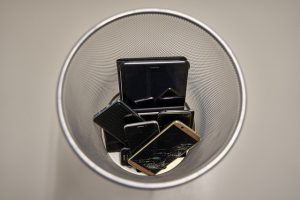
Multiple organizations in the European Union have joined together to create an ‘urban mining’ database. This database will catalogue an assortment of valuable materials including mining waste, spent batteries, scrap vehicles, and waste from electrical and electronic devices. The Urban Mining Platform hopes to track the ebb and flow of valuable materials as they are used and ultimately discarded.
The platform was created by a group of 17 partners. The project is known as Prospecting Secondary Raw Materials in the Urban Mine and Mining Wastes (ProSUM), and it has already provided experts with some fascinating data. The database is capable of tracking the amount of materials recovered or lost by the EU on an annual basis. According to the database, roughly 18 million tons of valuable materials are discarded every year.
Waste electrical and electronic equipment is the biggest offender. Norway, Switzerland, and the EU created about 10.5 million tons in 2016. That adds up to about 23% of the world’s total. But that’s not all: there’s also 2 millions tons of batteries, and between 7 and 8 million tons of scrap vehicles to contend with.
This all adds up to a lot of wasted resources — and EU experts want to solve this problem. The Urban Mine Platform is part of the solution. It provides data on the elements and raw materials that appear in these waste products. It also provides users with an assortment of other important information. This includes the number and type of products that are on the market, in stock, or simply generated as waste. Additionally the database can provide information on the compositions of key components and valuable materials. Finally, the database closely tracks the waste flows of all the materials and types of resources.
Experts hope that this urban mining experiment will help to recover important materials and give them a second life. It’s a creative type of recycling with potential for enormous growth. Not only would it improve the environment, it would reduce the dependence on suppliers outside of the EU.
The ProSUM consortium has filled the program with more than 800 source documents and databases. Combined with cutting-edge technology and constantly updating facts and figures, experts believe that this will paint an exhaustive and comprehensive picture of waste materials in the EU — and how they can be used as secondary raw materials.
